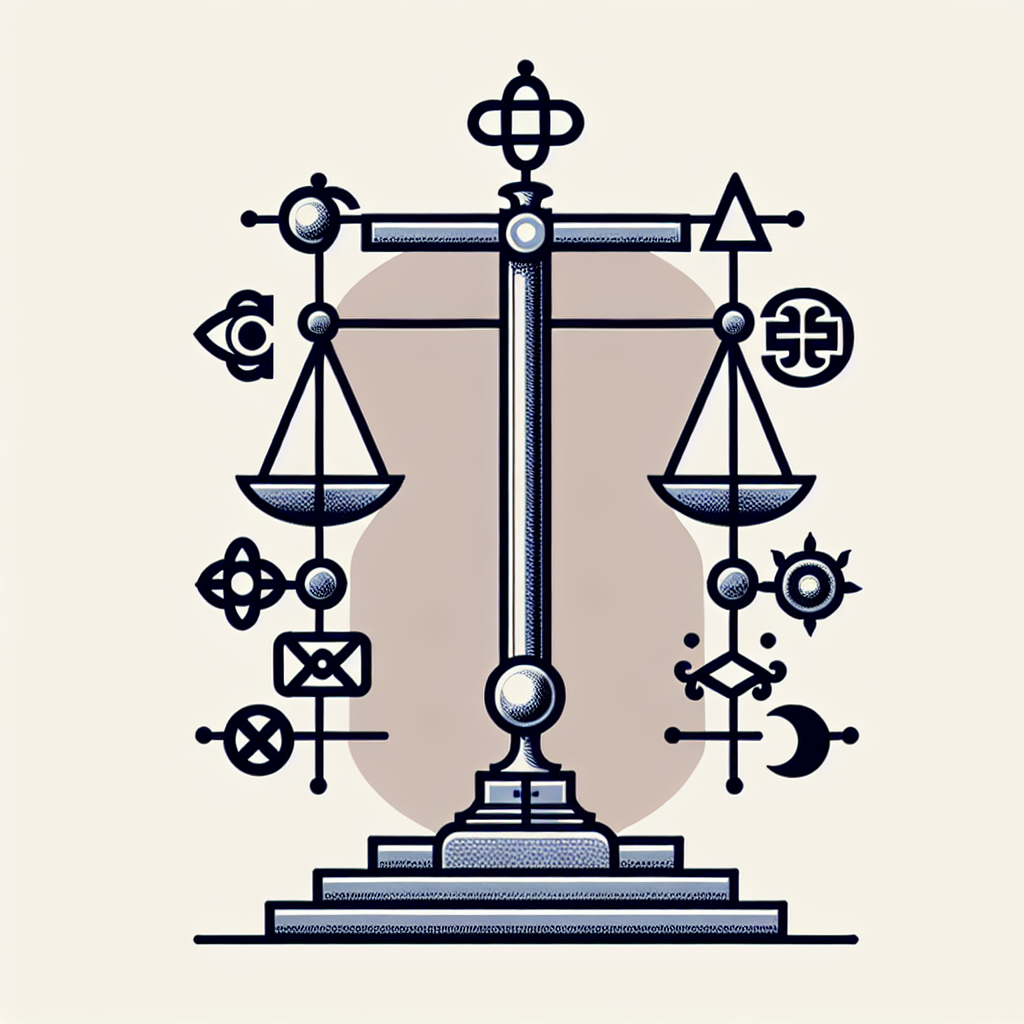Postmodernism and Christianity
The philosophy of postmodernism presents a threat to Christianity by arguing there is no objective truth and there is no such thing as human nature. However, a detailed study of postmodernist philosophy presents a harmful worldview...

Society today, perhaps more than any other in the past, sees Christianity attacked for its ideas and philosophy. From trying to discredit the authenticity of the Gospels to portraying the Christian worldview as outdated and restrictive, competing philosophies and worldviews try to attack Christianity and the Christian worldview at every turn. With the rise of social media and instant information, these competing philosophies and worldviews have been given more attention and credence than in years past. One of the dominant philosophies rising in recent years is that of postmodernism. The philosophy of postmodernism presents a threat to Christianity by arguing there is no objective truth and there is no such thing as human nature. However, a detailed study of postmodernist philosophy presents a harmful worldview that provides little in the way of genuinely challenging the pillars of Christianity.
Postmodernism’s thinking bases itself on cultural theory and thus posits that cultures all over the world have linked and have now become hybrids of each other.[1] Because of this, cultures constantly change as new ideas assimilate and add to the culture. Globalization further enhances this assimilation, allowing views that once took years to migrate from one culture to another to make that migration in weeks or months. Postmodernism also suggests postproduction theory, saying there are no new ideas or inventions, only the reimagining of old ideas in new ways.[2] Postmodernism has found its way not only in art and literature but also in contemporary thinking. Postmodernist thinkers use art, literature, and social media to influence the world around them to bring about a discourse to examine the meaning of the world around them.[3] In creating a dialog around these ideas, the postmodernist thinker will inevitably turn to the notion of relativism.

One can define relativism as a theory that truth and knowledge are not absolute but relative to situations.[4] Relativism helps the postmodernist deal with complex subjects in that each person can have their thoughts on an idea that fits them but not necessarily everyone else. Each moral argument has the same validity and equality. This idea contrasts with the one moral or valid truth of universalism and the nihilistic view that there are no single valid moral codes or single truths.[5] One sees relativistic thinking in today’s culture when dealing with moral topics such as abortion, gun rights, and religion. The phrase commonly said is, “That is just your truth. I have a different truth.” Another term widely expressed by relativistic thinkers is, “You do you, and I will do me.” The relativist believes that since morals and truths are not absolute but only relative to cultural contexts, there is also no such thing as human nature.
One argument against universal human nature is that someone invented human nature to control its citizens, and how humans think and feel has nothing to do with biological nature but social conditioning.[6] Not having a biological human nature fits well within the idea of postmodernism. If humanity had a base human nature, anything contrary to that base human nature could be deemed wrong. If humanity is constantly changing and evolving, then human nature would continue to change and evolve, showing there is no base human nature at all. Since everything humans think and feel comes from social conditioning, the notion that God created human nature is moot.
Since humanity receives its morals and truths from social conditioning, postmodernists believe that most humans are good people. This belief gives further credence to the idea that everyone can have their own truth. Since God does not play a part in human nature, God is not the standard by which humans should judge themselves. Humans can only determine their nature and what is right or wrong based on their experiences alone, and it is up to each individual to decide what is right or wrong based on those experiences.[7] For the postmodernist, experiences and feelings are the most important when assessing whether something is good or evil. Although there are arguments for postmodernist thinking, they pale in comparison to ideas challenging it.
One argument that threatens postmodern thinking is that since postmodernism ties itself to cultural theory, as culture changes, so do morals, truths, and values. If these are always subject to change, how can societies develop laws to govern their citizens? Things change over time, but basing morals and truths on what a culture believes is dangerous. Immanuel Kant claimed that truth was subjective and that the mind sets the terms for knowledge, not reality.[8] If reality is based upon an individual’s or culture’s mind, who is to say that truth is correct? According to the postmodernist, there would be an almost infinite number of truths or realities, and all would be equally valid. The problem with this line of thinking is that postmodernist thinkers often believe their view is correct while other ideas are incorrect. However, Kant also realizes this problem and states that “the human being is an animal which, when it lives among others of its species, has need of a master.”[9] Even Kant, who bases reality on subjective truth, understands that humans need an absolute truth. Postmodernists use illustrations to defend their way of thinking, but their examples often fail when scrutinized.

Slavery is one illustration postmodernists may use to defend their way of thinking. The United States practiced slavery from its inception until President Lincoln freed them after the Civil War. The 13th Amendment to the US Constitution abolished slavery with its ratification in 1865. Postmodern proponents will claim that the cultural shift helped the people of the United States change their minds about the evils of enslaving people. However, the forced enslavement of people is wrong no matter what a person believes. One could make this same argument against the postmodernist about Adolf Hitler and Germany in the early 20th century. If truth is relative, as the postmodernist believes, how can one justify the atrocities of Hitler and the Nazis in World War Two? If there is no absolute truth, then what the Nazis did was not wrong because it was their truth, and they believed what they were doing was right. Most people would not condone what Hitler and the Nazis did to the Jews in World War Two, and this shows how truth is not relative at all, and thus relativism is self-defeating. Relativists claim that relativism is how the world is and that everyone has their own truth. What the relativist really does is conflate truth with opinion or preference. Humans have their own thoughts, preferences, and ideas, which help form human nature.
It is part of human nature to want to have more than one does. This nature is apparent in Genesis 3:5, where the serpent tempts Eve to eat the forbidden fruit saying, “God knows that your eyes will be opened as soon as you eat it, and you will be like God, knowing both good and evil.” Eve wanted to be like God. This verse also shows the human nature of not wanting to be left out and to better oneself. These qualities are not sinful in and of themselves, but because they gave into temptation, Adam and Eve went against the Word of God, leading to man’s sinful nature and the fallen nature of the world today. Envy, pride, and self-improvement are just three ways humans are alike and are three things that separate humanity from other mammals. Another part of human nature is morality itself. As shown above, morality is not relative but ingrained within each human being. If it were not, nobody would be upset with anything anyone else does. Countries would need no laws, and anarchy would rule. However, this is the exact opposite of a civilized society. There is no doubt that postmodernists see the need for regulations. However, the main issue postmodernists have with human nature is they want to act selfishly to benefit themselves and their own feelings. Postmodernists attempt to lead people into relativistic thinking by saying there is no human nature. If nothing is shared across each individual, then each individual can do what they see fit to benefit their own happiness.

While relativism and a lack of human nature may sound good on the surface, a deeper look reveals this is not the case and would not produce a livable society. If each person made their own decision regarding right and wrong, human society would immediately transform to the survival of the strongest, most intelligent, or richest. This type of society is what one sees primarily in the animal kingdom. It is doubtful most humans would want to live in that type of society. Even postmodernist thinkers dislike when someone does something against their postmodern relativistic viewpoint. Once again, this self-defeating idea shows up when these types of thinkers engage in “canceling” another person because they do not agree with that person’s beliefs or actions. One cannot have it both ways. If everything is relative, there is no right or wrong, making everything subjective and personal. However, everything is not subjective; therefore, relativist and postmodernist ideas lead to an unlivable society.
Christianity has been the target of many postmodernism attacks. Postmodernist thinkers hold values that are contrary to the fundamental beliefs of Christianity. As mentioned above, postmodern thinkers believe that morals and truths change with the culture. Postmodernism thinking is oppositional to Christian thought. Christians believe there is an absolute moral standard of Jesus Christ and that He is the source of all truth. However, as more people adopt postmodern thinking, the moral shift has been more pronounced. In the past, the Christian church was at the forefront of guiding people and showing the moral standard of Jesus Christ. However, as church attendance has declined, people’s moral and ethical views have changed and have become more individualistic and harmful.[10]

Hebrews 13:8 tells Christians, “Jesus Christ is the same yesterday, today, and forever.” This statement reassures Christians that no matter what society or culture thinks or does, a Christian has an everlasting source of absolute truth that will never change. John 14:6 states, “I am the way, the truth, and the life.” The source of truth is Jesus Christ. With truth, there are only two options: true or false.[11] When one asks how to know the truth, a Christian needs only to reference the Bible. The problem most people have with accepting Biblical truth is it is sometimes the opposite of what people want to do. However, that does not make it any more or less true. For instance, eating only unhealthy foods will make a person gain weight and open the door for various medical issues. Many people enjoy eating a diet comprising mainly unhealthy foods. Nobody would argue that eating unhealthy foods was acceptable because “it was their truth.” People know the truth but do not always like the truth. The same principle applies to the Bible.
Postmodernism clashes with Christianity precisely because postmodernism relies on feelings and emotions to determine truth rather than facts. Postmodernists can argue there is no truth, but that does not make the argument valid. Postmodernist thinkers claim their stances on moral issues are tolerant and accommodating but do not have solid justification. As they claim, they have no grounds to argue for any of their beliefs if there is no absolute truth. There would be nothing wrong with stealing, outlawing differing opinions, racism, or murder. John writes in 1 John 4:16, “We know how much God loves us, and we have put our trust in his love. God is love, and all who live in love live in God, and God lives in them.” To refute relativistic truth, a Christian only needs to know that Jesus is truth, Jesus is love, and Jesus is unchanging.
Christians can also take joy in knowing there is an innate human nature that comes from God and longing to be like God. In Genesis 1:26, God said, “Let us make human beings in our image, to be like us.” God made humans in His image, so humanity was to be like God, although lacking his power, omniscience, and omnipresence. Humans can reason. Reason allows humanity to think about their nature, the surrounding people, and their environment. Because God created humans in His image, He enables humanity to understand Him and His design of the earth and the cosmos. Humans can be patient, kind, trustworthy, and hopeful.

Paul writes in 1 Corinthians 13:4-7, “Love is patient and kind. Love is not jealous or boastful or proud or rude. It does not demand its own way. It is not irritable, and it keeps no record of being wronged. It does not rejoice about injustice but rejoices whenever the truth wins out. Love never gives up, never loses faith, is always hopeful, and endures through every circumstance.” If God is love, and if humans are made in the image of God, it stands to reason human nature would have some attributes of God. Even though human beings are God’s imagers, sin damaged humanity’s perfect human nature. However, when people trust in Christ, they receive a new nature. The apostle Paul speaks in 2 Corinthians 5:17: “This means that anyone who belongs to Christ has become a new person. The old life is gone; a new life has begun!” Christians have received a new life and new nature through Jesus Christ. Not that Christians are perfect, but God helps develop people’s new nature and to grow more holy.
There are many differences between postmodernist and Christian philosophies and worldviews. Whereas the postmodernist holds that everything is relative and there are no moral or absolute truths, the Christian holds that Jesus Christ is the only moral and absolute truth on which all humanity can depend. Although postmodern thinking might sound appealing, when put under scrutiny, postmodernism fails to create a livable society, much less an ideal one. Humanity needs standards by which to live. Jesus Christ gives the world an unchanging and everlasting standard that easily withstands the perceived threats of postmodernist thinking.
Bibliography
Cary, Phillip. “Right-Wing Postmodernism and the Rationality of Traditions.” Zygon: Journal of Religion & Science 52, no. 3 (2017): 807-21.
Clauson, Mark A. “Human Nature and the Christian.” History and Government Faculty Publications (2015).
Fischer, Rachel K. “Postmodernism.” Reference & User Services Quarterly 54, no. 1 (2014): 29-33.
Gould, Paul, Travis Dickinson, and Keith Loftin. Stand Firm. Nashville: B&H Publishing Group, 2018.
Halman, Loek and Erik van Ingen. “Secularization and Changing Moral Views: European Trends in Church Attendance and Views on Homosexuality, Divorce, Abortion, and Euthanasia.” European Sociological Review 31, no. 5 (2015): 616-27.
Hicks, Stephen Ronald Craig. Explaining Postmodernism: Skepticism and Socialism from Rousseau to Foucault. Expand ed. Roscoe, Ill.: Ockham’s Razor Publishing, 2018.
Oxford, English D. ““Relativism, N.”.” https://www.oed.com/view/Entry/161821?redirectedFrom=relativism.
Rorty, Amélie Oksenberg and James Schmidt. Kant’s Idea for a Universal History with a Cosmopolitan Aim a Critical Guide /. Cambridge : Cambridge University Press, 2009.
Stenmark, Mikael. “Is there a Human Nature?” Zygon: Journal of Religion & Science 47, no. 4 (2012): 890-902.
Turner, James T.,Jr. “Identity, Incarnation, and the Imago Dei.” International Journal for Philosophy of Religion 88, no. 1 (2020): 115-31.
Wreen, Michael. “What is Moral Relativism?” Philosophy (London) 93, no. 3 (Jul, 2018): 337-54.
[1] Rachel K. Fischer, "Postmodernism," Reference & User Services Quarterly 54, no. 1 (Fall 2014 2014): 29.
[2] Ibid., 30.
[3] Ibid., 30.
[4] "relativism, n.". OED Online. June 2022. Oxford University Press.
[5] Michael Wreen, "What Is Moral Relativism?," Philosophy 93, no. 3 (Jul 2018 2019-11-23 2018): 338.
[6] Mikael Stenmark, "Is There a Human Nature?," Zygon: Journal of Religion & Science 47, no. 4 (12 2012): 891.
[7] Clauson, Marc A., "Human Nature and the Christian" (2015). History and Government Faculty Publications. 11.
[8] Stephen Ronald Craig Hicks, Explaining Postmodernism: Skepticism and Socialism from Rousseau to Foucault, Expand ed. (Roscoe, Ill.: Ockham's Razor Publishing, 2018).
[9] Amélie Oksenberg Rorty and James Schmidt, Kant's Idea for a Universal History with a Cosmopolitan Aim a Critical Guide / (Cambridge : Cambridge University Press, 2009), 15.
[10] Loek Halman and Erik van Ingen, "Secularization and Changing Moral Views: European Trends in Church Attendance and Views on Homosexuality, Divorce, Abortion, and Euthanasia," European Sociological Review 31, no. 5 (2015), 617.
[11] Paul Gould, Travis Dickinson, and Keith Loftin, Stand Firm (Nashville: B&H Publishing Group, 2018), 21.
